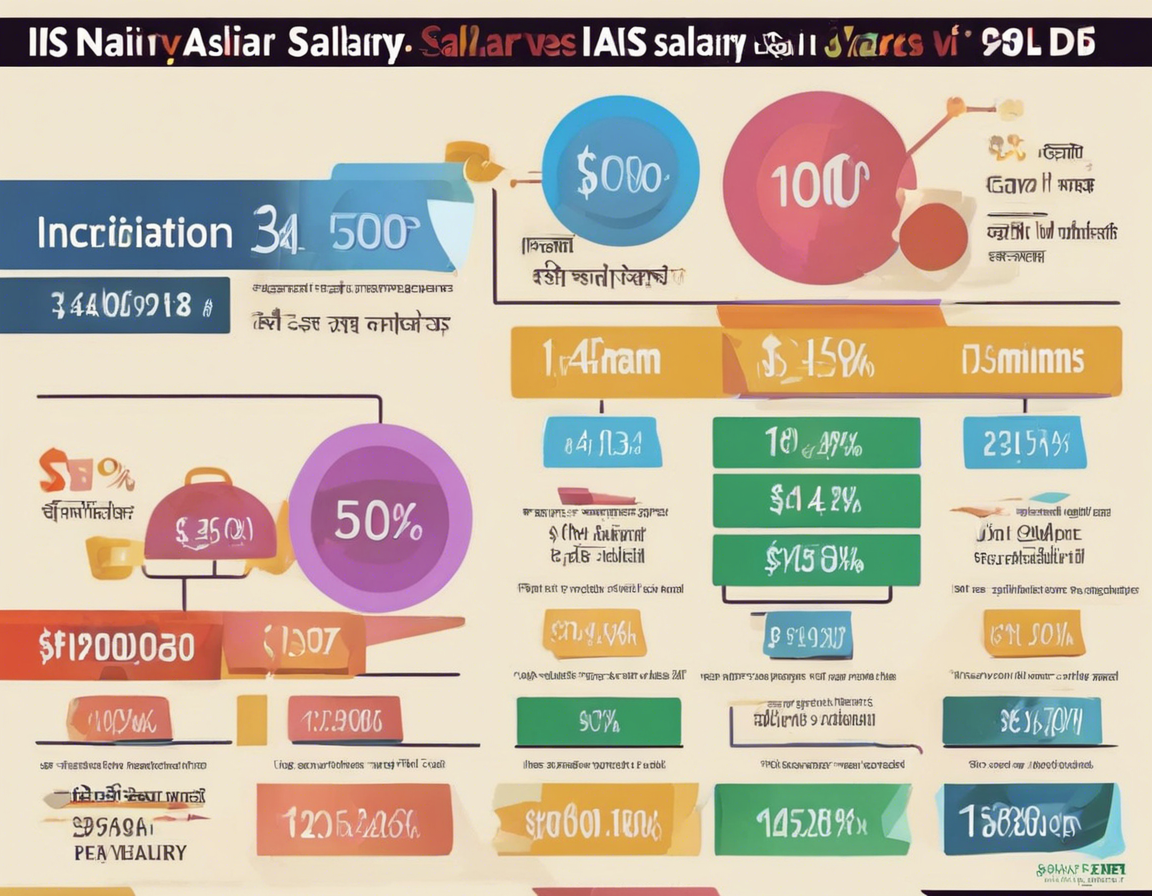Joining the Indian Administrative Service (IAS) is a dream for many individuals in India. Apart from the prestige and influence that comes with the role, one of the major draws is the IAS salary. The salary structure of IAS officers is one of the most lucrative in the country, making it an attractive career option for many aspirants. In this blog post, we will delve into everything you need to know about the IAS salary – from the components that make up the salary to the allowances and perks that come with the job.
Understanding the IAS Salary Structure
Basic Pay
The IAS salary is based on the 7th Pay Commission recommendations. The basic pay of an entry-level IAS officer is INR 56,100. The basic pay increases as the officer progresses in their career.
Dearness Allowance (DA)
Along with the basic pay, IAS officers also receive Dearness Allowance, which is currently set at 17% of the basic pay.
House Rent Allowance (HRA)
IAS officers are also provided with House Rent Allowance, which varies depending on the posting location – 24%, 16%, or 8% of the basic pay.
Travel Allowance
IAS officers are entitled to Travel Allowance for official journeys.
Medical Facilities
They also receive medical facilities for themselves and their families.
Additional Allowances and Perks
Conveyance Allowance
IAS officers receive a conveyance allowance to cover travel and transportation expenses.
Telephone Allowance
They are also provided with a telephone allowance to cover communication expenses.
Provident Fund
A part of the IAS officer’s salary is deducted towards the provident fund, which serves as a retirement savings scheme.
Pension
At the end of their service, IAS officers are entitled to a pension, ensuring financial security post-retirement.
Frequently Asked Questions (FAQs)
1. What is the starting salary of an IAS officer?
The starting salary of an entry-level IAS officer is INR 56,100.
2. Do IAS officers receive any additional allowances apart from the basic pay?
Yes, IAS officers receive additional allowances such as Dearness Allowance, House Rent Allowance, Travel Allowance, Conveyance Allowance, Telephone Allowance, etc.
3. How is the House Rent Allowance (HRA) calculated for IAS officers?
HRA for IAS officers is calculated based on the posting location – 24%, 16%, or 8% of the basic pay.
4. Do IAS officers have access to medical facilities?
Yes, IAS officers and their families are provided with medical facilities.
5. Is there a retirement scheme for IAS officers?
IAS officers contribute towards the Provident Fund during their service and are entitled to a pension post-retirement.
6. How does the salary of IAS officers compare to other civil service officers?
The salary of IAS officers is among the highest in the civil services, making it a coveted career choice.
7. Are there any performance-based bonuses for IAS officers?
IAS officers do not receive performance-based bonuses; however, they are entitled to timely salary revisions as per government norms.
8. Can IAS officers avail of leave benefits?
IAS officers are entitled to various leave benefits such as earned leave, medical leave, and maternity leave, among others.
9. Are there any tax benefits for IAS officers?
IAS officers enjoy certain tax benefits such as exemptions on certain allowances and deductions under the Income Tax Act.
10. How does the salary of IAS officers progress over the years?
The salary of IAS officers increases with years of service and promotions. They can also avail of other benefits and perks as they progress in their careers.
In conclusion, the IAS salary is not only attractive in terms of the financial remuneration it offers but also in terms of the additional benefits and perks that come with the job. For many individuals, the allure of serving the nation as an IAS officer is further heightened by the lucrative salary package and opportunities for personal and professional growth.
